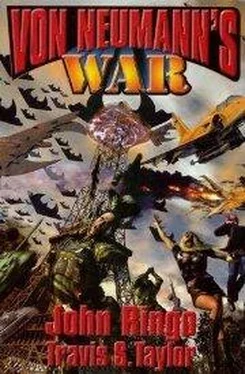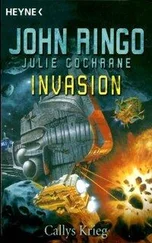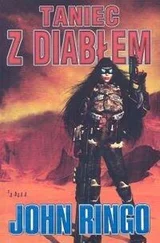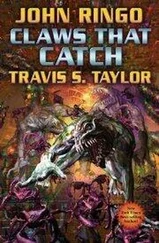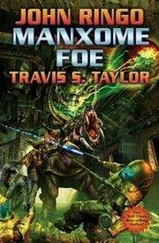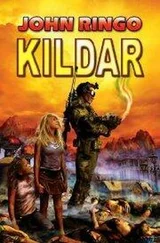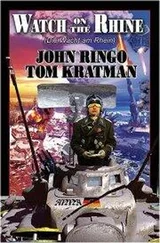Ret Ball: Really? How old are you and Charlotte?
Caller: Well I’m thir-… uh… eighteen.
Off-phone, female voice, faint: Dingbat!
Caller: But we really did see it and it was gray not red!
Ret Ball: Out of the mouths of babes. Next caller is Tim from Beantown. Go ahead Tim you are on the Truth Nationwide.
* * *
“I’m glad y’all could make it tonight.” Roger held up his beer glass while Tom and Alan made themselves comfortable on the wooden stools. “I went and did some checking of my own. Traci was right. There is a noticeable difference in the surface albedo of Mars. This one paper I found by a J.H. Davis, et al., even had some really good Hubble data from a year and a half ago. Interestingly enough, the paper says there will be another run from Hubble on Mars this past year, but I’ve looked everywhere and can’t find it. I even called up to Johns Hopkins and got stonewalled about it. I wanted to discuss the ramifications of that with y’all.”
“You never learn, do you?” Traci laughed. Tom had started to pour himself a beer, but Traci appeared as if from nowhere and slapped him on the hand.
“Yeah, Tom,” Alan chuckled, “that’s her job.”
“Shift change… I just got here and I’m running sooo late tonight.” Traci smiled at the three men and finished pouring the beer, then adjusted her T-shirt so it was tighter across the front.
“Wings tonight fellows?”
“Nah, just beer, I think,” Roger said, sliding his now empty glass towards her.
“Hey, beer is food,” Alan said. “Cheers!”
“I’ll have some curly fries,” Tom told her. Traci wrote something down on a piece of paper and attached it to the wire above her head. “ORDER IN!” She smiled, slid the order down the wire, and turned to her other tables.
“So what gives, Rog?” Alan sipped his beer.
“I think it’s a muster point,” he said.
“ What is a muster point?” Tom leaned in to listen better.
“It’s a point or location where forces gather to prepare for further advancement. But that’s not important right now,” Alan replied with a grin.
“Be serious for a moment, Alan,” Tom said sonorously. “I know it’s not in your nature, but you simply have to apply yourself. You can do it. Maybe not doctoral level sobriety, but masters level should be possible.”
“I guess this was the wrong day to stop drinking beer then,” Alan said, still grinning as he killed off his beer. He was the only one of the three who had, as he put it, “gotten a real job” after getting his masters. Ergo, he was not a “doctor,” simply a lowly schlub engineer with a masters.
“I think that Mars is being used to muster resources,” Roger said. He contemplated his beer glass and seemed more serious than usual. “I did a calculation from some of that data I found on the Internet and the rate of change of Mars’ surface albedo is so nonlinear that there is no way this is some sort of natural phenomena.”
“What, you think it’s aliens?” Tom asked with a laugh.
“Yes,” Roger said flattly monotone.
Alan put his beer down, picked it back up as if to drink the last backwash from it, and set it down without drinking. “You’re serious, aren’t you, Rog?”
“Okay, you explain how the entire surface of a planet changes color in a year and how come we’ve lost all contact with any of the probes we’ve sent there. And why data from the Hubble Space Telescope that always — always — goes on the Space Telescope Science Institute’s website is missing. All the other data from the other Hubble runs is there, but not that one. I checked Hubble’s schedule. The Mars run was on it. Where’s the data? I’ll tell you where: It’s been classified.”
“All right, let’s assume that you are right. What do we do about it?” Tom asked.
“Well, I think the first and most important thing is intel. We’ll need recon of the planet. I mean recon with sub-meter resolution.” Roger waited for the implications of his statement to sink in on the other two engineers.
“Yes, yes, that’s what Earth should do. But what do we do about it?” Tom repeated.
“ We ,” Roger emphasized. “We assume that somebody is looking into it, and that it’s the right somebody. Then, as I said, I think the first and most important thing is intel. We’ll design a recon mission of the planet. And again, I mean recon with sub-meter resolution. Then, I guess, I’ll just have to take the mission design and put it in front of the right somebody.” Roger nodded to the two men as if they understood what he meant by the “right somebody.”
“Sub-meter?’ Alan whistled.
“Wow, we can’t do that with any telescope from Earth orbit.”
“And it takes a half of a year at least just to get to Mars,” Tom said, shaking his head.
“Well, I’ve been thinking about that,” Roger admitted. “All we really need is a good old-fashioned spy satellite. Just one that is smaller and lighter and has to go a hell of a lot farther and faster, then stop and deploy itself.”
“Oh, well, if that’s all…” Tom laughed.
“Here is a strawman design for a recon probe I put together last night.” Roger ignored Tom’s comment and continued by handing the two men each a copy of some block diagrams for a spacecraft design. “It’s similar to the one we worked on for — you know.” Roger raised an eyebrow and looked around the restaurant, making clear that they couldn’t discuss that here. The two men looked back and nodded in realization of what Roger was hinting at. Then he could tell that they both realized who “the right somebody” must be.
“It’s just a block diagram of what we would need, but I think we could build a probe from off-the-shelf parts in no time. Some of the parts we could rob from that new Discovery program Jupiter probe and some from — uh, you know, other sources.” He nodded again, implying that of course the other men did know. In fact, the three men had worked on previous classified spy and communications satellite programs for more than fifteen years together. But few people knew that or ever would know that.
“The problem is the propulsion. Tom, how could we get there faster than six months?” Alan interrupted.
“Hmmm. That ain’t easy or we’d be doing it, right? Let’s see, if we assume a Delta IV launch, and COTS engines for the probe, and assuming that Mars is in the right part of its orbit, you might do it in six months, but I doubt less.” Tom picked up a Hooters napkin and started scribbling notes on it.
“What if we made the probe small enough that we could get two upper stages on it?” Alan suggested.
“That might work, but we would need to know the spacecraft bus size and how much room we would have for the kick stages. And it really isn’t a factor of the payload mass as the number of stages, stage efficiency, and thrust needed.” Tom drew out a picture of a Delta IV primary payload shroud and drew some boxes of varying shapes and sizes inside it. Then he began scribbling while muttering under his breath.
“Kick motor1 ~30,000kg, kick motor2 30,000kg, tankage 2000kg, heat transfer100kg, batteries PCU 1000kg, ACS/RCS 150kg, hi-gain deployable antenna 50kg, low-gain antenna 5kg, main bus 1000kg, GN C 50kg, IVHM 5kg, science suite 1000kg, structural components 100kg, and pyrotechnics 10kg, braking engine and fuel 1000kg.” Then to the side of the drawing he wrote: “ Total = really heavy.”
“Yep, Delta IV Heavy with strap-ons or an Atlas V with strap-ons. But, I’m not sure that just two upper stages are enough.”
“Hey, hold on a minute. If we’re gonna see anything once we get into a closed orbit about Mars we still need a pretty good-sized aperture. So don’t start eatin’ up my room for the telescope with extra kick rockets. And since we’re gonna need at least a half meter telescope or better, you probably ought to add another 500kg for the telescope itself,” Roger warned.
Читать дальше
